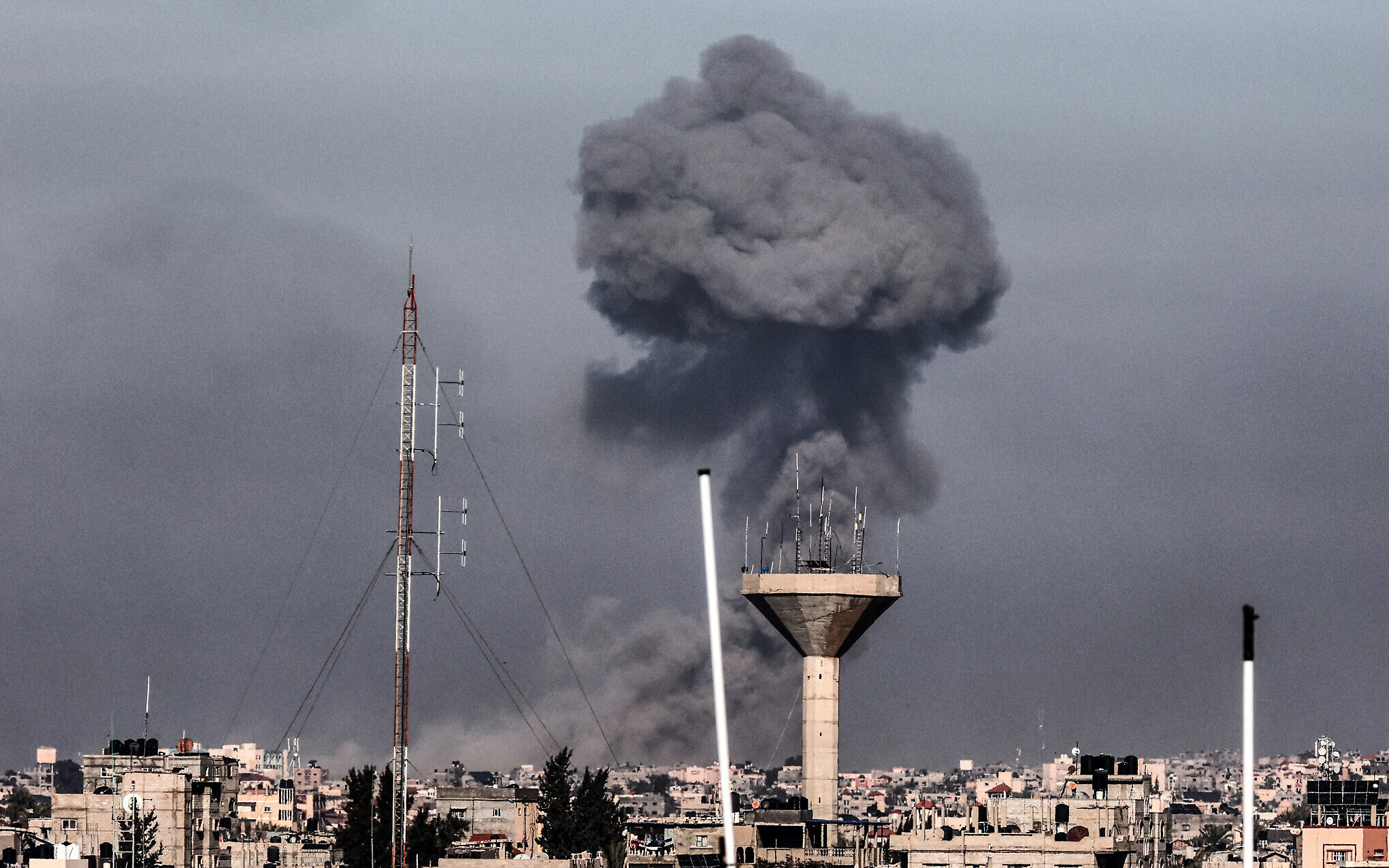Israeli PM Firm On Rafah Invasion, Sparks US-Israel Discord
Israeli PM firm on Rafah invasion plan but US has cautioned against the plan. Tensions between the US and Israel loom as a senior Biden administration official has revealed a "growing divide" between the two nations.
Author:Suleman ShahReviewer:Han JuFeb 12, 20243.2K Shares246.4K Views

The Israeli PM firm on rafah invasion. Amid escalating tensions in the Gaza Strip, Israeli Prime Minister Benjamin Netanyahu has reaffirmed his intention to proceed with plans to invade the city of Rafah. Netanyahu's declaration, made in an interview with ABC News, underscores Israel's determination to extend its military operations despite mounting international alarm.
Israeli PM Firm On Rafah Invasion
"We're going to do it," Netanyahu declared, emphasizing the ongoing development of plans for the assault.
"We're going to do it while providing safe passage for the civilian population so they can leave," Netanyahu stated.
However, the destination for the displaced remains uncertain. Netanyahu emphasized they are "working out a detailed plan" and pointed to cleared areas north of Rafah.
Concerns loom over the fate of the estimated 1.4 million Palestinians residing in Rafah, as Israel is yet to unveil strategies for protecting civilians amidst the impending assault.
International Response And Concerns
The United States, a key ally of Israel, has expressed reservations about the proposed ground assault on Rafah. The Biden administration has cautioned against the plan, emphasizing the need to prioritize the safety of civilians in the region. Meanwhile, the European Union's foreign policy chief, Josep Borrell, echoed concerns that an invasion of Rafah could lead to a "humanitarian catastrophe" and exacerbate tensions with Egypt.
Egypt, a crucial player in the conflict, has vehemently opposed Israel's plans, fearing the displacement of hundreds of thousands of Palestinians into the Sinai Peninsula. Cairo has underscored the potential threat to its decades-old peace treaty with Israel, warning of grave consequences if Israeli troops deploy near its borders.
Complex Dynamics And Regional Fallout
The situation in Rafah is further complicated by Hamas's presence and the intricate network of tunnels in the area, some of which extend into Egyptian territory. Mamoun Abu Nowar, a retired general of the Jordanian air force, warns of the formidable challenge of neutralizing these tunnels, highlighting the potential for protracted conflict and extensive collateral damage.
UNRWA Commissioner-General Philippe Lazzarini has sounded the alarm, expressing grave concerns about the looming humanitarian crisis in Rafah. The densely populated city, already ravaged by years of conflict, faces an uncertain future as the specter of military intervention looms large.
Growing Discord Between Israel And The US
The prospect of a ground offensive in Rafah has exacerbated tensions between Israel and the United States. A senior Biden administration official has revealed a "growing divide" between the two nations, particularly concerning the handling of the conflict.
The White House and State Department have reiterated their stance against supporting an Israeli operation in Rafah without comprehensive plans to safeguard civilian lives.
Conclusion
As Israel remains resolute in its determination to proceed with the invasion, the international community watches with bated breath, apprehensive of the potential fallout and humanitarian consequences of escalating hostilities in Rafah.

Suleman Shah
Author
Suleman Shah is a researcher and freelance writer. As a researcher, he has worked with MNS University of Agriculture, Multan (Pakistan) and Texas A & M University (USA). He regularly writes science articles and blogs for science news website immersse.com and open access publishers OA Publishing London and Scientific Times. He loves to keep himself updated on scientific developments and convert these developments into everyday language to update the readers about the developments in the scientific era. His primary research focus is Plant sciences, and he contributed to this field by publishing his research in scientific journals and presenting his work at many Conferences.
Shah graduated from the University of Agriculture Faisalabad (Pakistan) and started his professional carrier with Jaffer Agro Services and later with the Agriculture Department of the Government of Pakistan. His research interest compelled and attracted him to proceed with his carrier in Plant sciences research. So, he started his Ph.D. in Soil Science at MNS University of Agriculture Multan (Pakistan). Later, he started working as a visiting scholar with Texas A&M University (USA).
Shah’s experience with big Open Excess publishers like Springers, Frontiers, MDPI, etc., testified to his belief in Open Access as a barrier-removing mechanism between researchers and the readers of their research. Shah believes that Open Access is revolutionizing the publication process and benefitting research in all fields.

Han Ju
Reviewer
Hello! I'm Han Ju, the heart behind World Wide Journals. My life is a unique tapestry woven from the threads of news, spirituality, and science, enriched by melodies from my guitar. Raised amidst tales of the ancient and the arcane, I developed a keen eye for the stories that truly matter. Through my work, I seek to bridge the seen with the unseen, marrying the rigor of science with the depth of spirituality.
Each article at World Wide Journals is a piece of this ongoing quest, blending analysis with personal reflection. Whether exploring quantum frontiers or strumming chords under the stars, my aim is to inspire and provoke thought, inviting you into a world where every discovery is a note in the grand symphony of existence.
Welcome aboard this journey of insight and exploration, where curiosity leads and music guides.
Latest Articles
Popular Articles